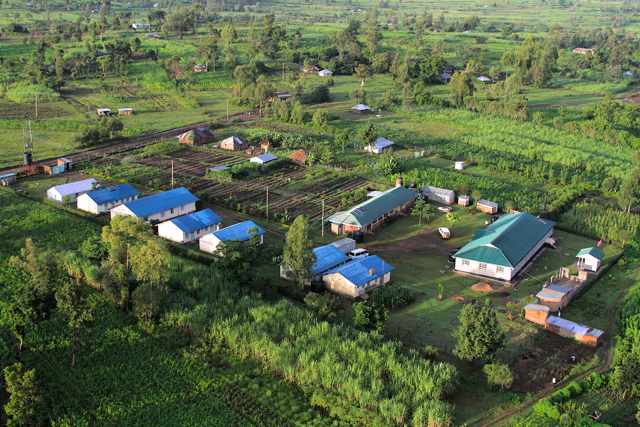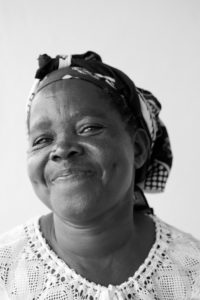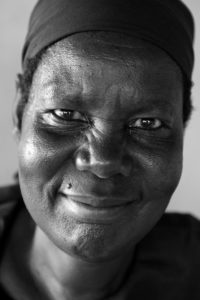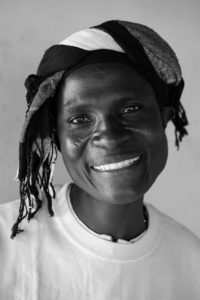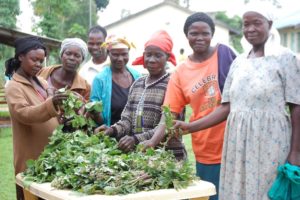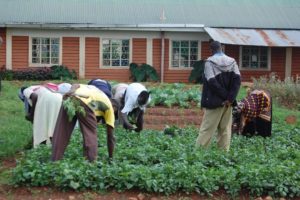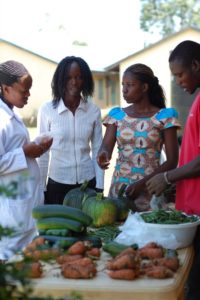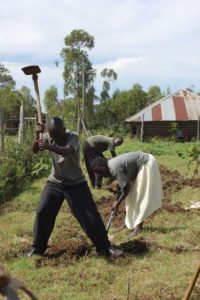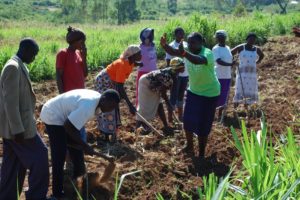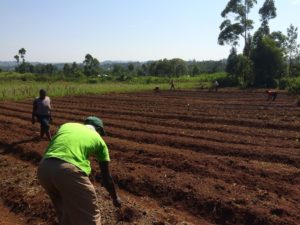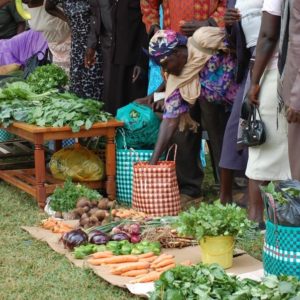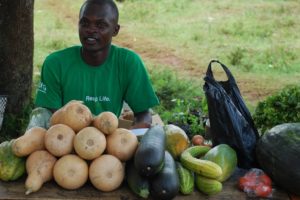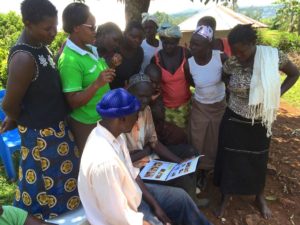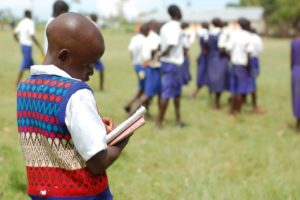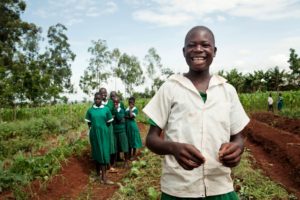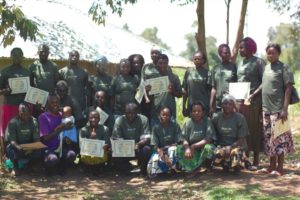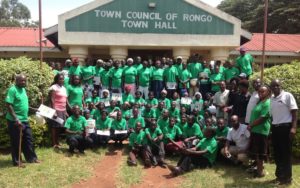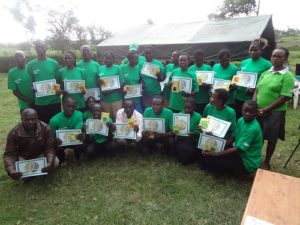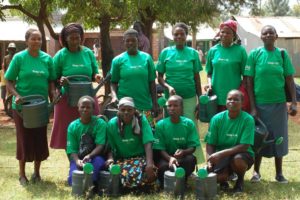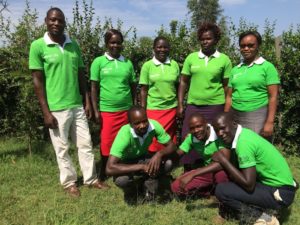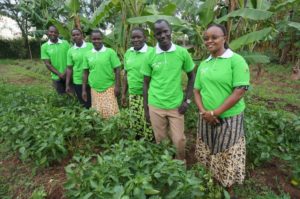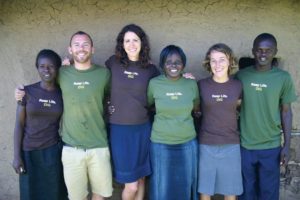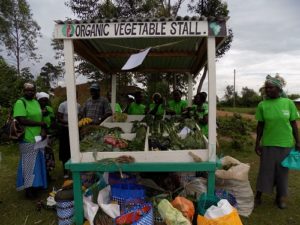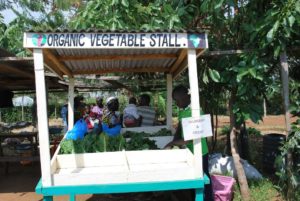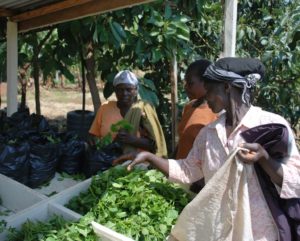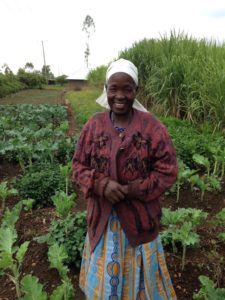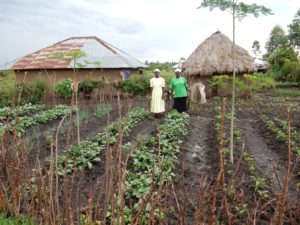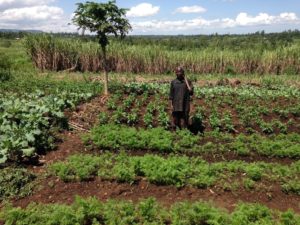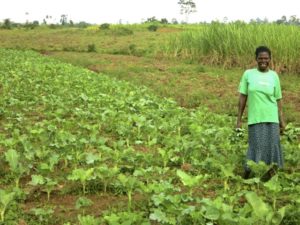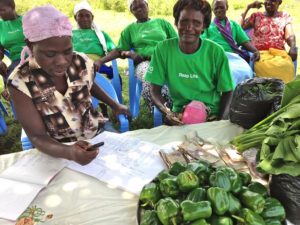by: Noah Derman
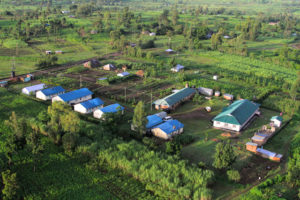 |
| Aerial Shot of Lwala taken by Cleave Frink (Apple) |
It has been 5 years since I took my first trip with DIG to Africa. After an amazing visit to Zambia, I traveled with Andy Bryant, Executive Director of the Segal Family Foundation, and Catherine Magill, then acting DIG Program Coordinator, to Western Kenya. Our aim was to explore and vet potential program partnerships. DIG was looking at several opportunities for collaboration within Kenya and Uganda. Lwala Community Alliance (LCA) was one of our first stops. After spending only a little time on the ground with their key staff, it quickly became clear that LCA was a special organization and community and one in which DIG would thrive in.
What made LCA a clear choice of partners was their strong leadership on the ground, their ethos of grassroots development, their seeking of multidisciplinary partnerships, their focus on a true holistic view of health, and their connection with the Lwala Community.
After a period of planning and due diligence, DIG broke ground at the end of 2011. At the time, we could never have imagined the extent of such a transformative partnership for both our organizations and the community we would jointly serve. Throughout the years, we spent significant time and energy collaborating, developing, and piloting new programs, but careful to remember our longstanding goal of equipping LCA to run DIG’s programming independent of our formal involvement. This is always part of our goal towards sustainability, we aim to write ourselves out of the picture.
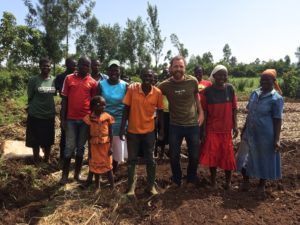 |
| With Vidah and a local Mobile Farmer Field School Group |
As our formal partnership comes to a close in 2017, we are excited to cap off our years together achieving what we always set out to do. LCA will continue to run DIG’s program on their own even expanding their Economic Department’s reach to include DIG’s agriculture model. LCA will also be modeling themselves as a viable example of a service provider addressing malnutrition and food security among their patients through innovative sustainable agriculture practices. We are also encouraged to leave behind four capable local facilitators ready to carry the work forward, always a part of our network of teachers and learners.
As DIG leaves Lwala, we also look forward to new partnerships, initiatives, and communities to serve. In 2017, DIG will be expanding our work to other nearby counties and partnership with new government hospitals in the region. We will return to Lwala on a regular basis to host workshops and trainings, continue to evaluate our impact on the community and reconnect with friends.
There are too many people, staff, volunteers, interns, farmers, community leaders, stakeholders, and partners to thank who have contributed so much time and energy to make this partnership at Lwala successful. Amongst the crowd there are a few special thanks I would like to give:
- James Nardella (former LCA Executive Director)- who had a clear and positive vision of what a DIG/LCA partnership could produce,
- Andy Bryant and Segal Family Foundation- who linked and financially sponsored the first two years of our work,
- Robert Kasambala (LCA Hospital and Operations Director)- who’s warm smile and authentic welcoming collaborative spirit always greeted us at Lwala,
- Catherine Magill- who literally planted the first seeds in the DIG/LCA Gardens,
- Olivia Nyaidho- who took over the reigns and grew the program to what it is today, and
- All of DIG’s Local Facilitators Past and Present (Tobias, Isaya, Vincent, Sarah, David, Peres, Vidah, Otieno, Mercillius, and Faith) who are the ‘roots of this project’ – nothing would have grown without their dedication and hard work.
DIG Programs at Lwala:
- Mobile Farmer Field School
- Farmer Business School
- School Garden Projects
- Value addition- Hibiscus and Moringa
- Organic Vegetable Stall
- Priority Household
- Lwala Farm Model Farmers
A few examples of what these programs have meant for the people the serve:
Mobile Farmer Field School Impact in Lwala Catchment Area
- Trained over 521 people through our Mobile Farmer Field School
- High adoption rate among the farmers: 88%
- Average DIG farmers is growing and consuming 4 types of vegetable from their gardens
- Gardens are providing both food security and income generation. DIG trained farmers on average moved from 1.7 to 9 meals a week from garden
- Farmer income on average from their gardens moved from KSH 120 to KSH 369 per week
- The groups trained by DIG have also turned to socio economic groups where members also do group savings and loaning – A group of 20 people save up to Ksh. 120,000 in six months
Schools Programs in Lwala Catchment Area
- DIG developed school gardens and program in 5 primary schools in Lwala benefiting over 2,500 students
- 150 students developed home gardens
- Garden produce from school supplemented the food in school for needy students
- 12 students were sponsored for exam fees from garden income
- Woodlots were planted in every school
Photos from the Partnership
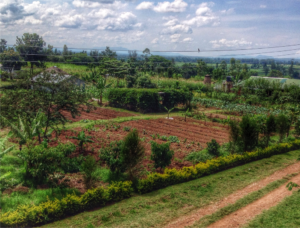 |
| Lwala Hospital Garden 2015 |
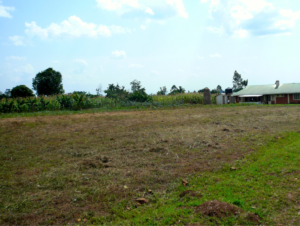 |
Lwala Before DIG
 |
| Robert’s Welcoming Smile |
|
A Few of Our Favorite Farmers
Workshops at Lwala
A Few School Shots
Mobile Farmer Field School Graduation
DIG Staff and Local Faciliators
DIG LCA Organic Vegetable Stall
Home Gardens and Sales




